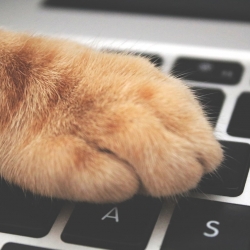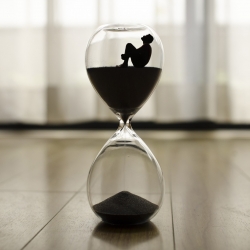To provide the best experiences, we use technologies like cookies to store and/or access device information. Consenting to these technologies will allow us to process data such as browsing behaviour or unique IDs on this site. Not consenting or withdrawing consent, may adversely affect certain features and functions.
The technical storage or access is strictly necessary for the legitimate purpose of enabling the use of a specific service explicitly requested by the subscriber or user, or for the sole purpose of carrying out the transmission of a communication over an electronic communications network.
The technical storage or access is necessary for the legitimate purpose of storing preferences that are not requested by the subscriber or user.
The technical storage or access that is used exclusively for statistical purposes.
The technical storage or access that is used exclusively for anonymous statistical purposes. Without a subpoena, voluntary compliance on the part of your Internet Service Provider, or additional records from a third party, information stored or retrieved for this purpose alone cannot usually be used to identify you.
The technical storage or access is required to create user profiles to send advertising, or to track the user on a website or across several websites for similar marketing purposes.
 According to the results of a recent survey conducted by OnePoll on behalf of Citrix Systems, work has a completely new look as employees around the world adapt to the realities or working from home. Beds have become desks, bathrooms serve as conference rooms, kids and pets crash virtual meetings and cameras thought to be off capture awkward moments and sounds. Yet, workers remain as, if not more, productive and engaged. (more…)
According to the results of a recent survey conducted by OnePoll on behalf of Citrix Systems, work has a completely new look as employees around the world adapt to the realities or working from home. Beds have become desks, bathrooms serve as conference rooms, kids and pets crash virtual meetings and cameras thought to be off capture awkward moments and sounds. Yet, workers remain as, if not more, productive and engaged. (more…)
















 A gap exists between the way leaders and employees view progress toward equality in their organisations, according to new research from
A gap exists between the way leaders and employees view progress toward equality in their organisations, according to new research from 


 Nearly half of UK workers admit to being greener at home than they are in the office, although more and more are realising the importance of green habits,
Nearly half of UK workers admit to being greener at home than they are in the office, although more and more are realising the importance of green habits, 
 Three-quarters of UK workers see pointless meetings as “normal” and 6 in 10 have attended a meeting that had no productive outcomes, a new survey claims. The research involved more than 4,000 full-time workers in the US, UK, France and Germany, including more 1,000 in the UK. The data suggests that the US undertakes the most zero-outcome meetings, with 8 in 10 respondents saying they have attended a useless meeting in their current job.
Three-quarters of UK workers see pointless meetings as “normal” and 6 in 10 have attended a meeting that had no productive outcomes, a new survey claims. The research involved more than 4,000 full-time workers in the US, UK, France and Germany, including more 1,000 in the UK. The data suggests that the US undertakes the most zero-outcome meetings, with 8 in 10 respondents saying they have attended a useless meeting in their current job. 
 The UK is ignoring the value of millions of workers by overlooking workplace training and opportunities to upskill, a new survey has suggested. According to the
The UK is ignoring the value of millions of workers by overlooking workplace training and opportunities to upskill, a new survey has suggested. According to the 







March 2, 2020
Workers are as important as external stakeholders
by Bianca West • Comment